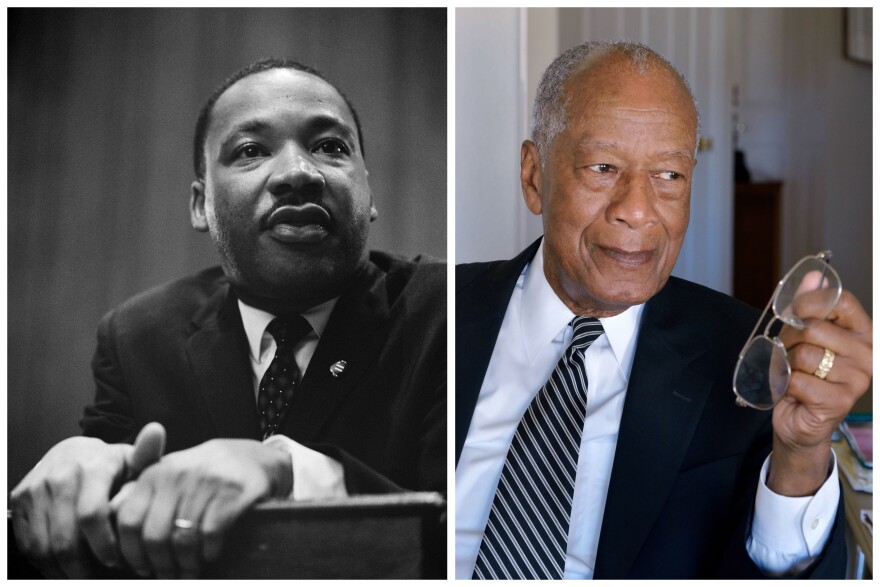Monday was Martin Luther King Jr. Day, a national holiday honoring the life and work of one of the most dedicated and celebrated leaders of the civil rights movement. It falls on the third Monday of each January to mark King’s birthday, which is January 15. This year, he would have been 90 years old.
Robert Green is Dean Emeritus at Michigan State University and the former education director of the Southern Christian Leadership Conference. Green spoke with Stateside about the social justice work he did alongside King until his assassination in 1968.
Green first encountered King in 1956 when he caught the end of King's speech while on a lunch break from his part-time job as a cab driver, which he worked while pursuing his bachelor’s degree.
Green says that he had been following King’s work through the news, particularly his social justice work in Alabama. When the speech was over, he took the opportunity to introduce himself to King.
“I told him that I wanted to work with him one day and he said ‘Well, you keep going to school and when you finish your education, contact me and we’ll perhaps get together,’” Green said.
That opportunity presented itself about a decade leader after Green earned his Ph.D. from Michigan State University and became the first black faculty member at James Madison College. In February of 1965, King was invited to speak on the university’s campus, and Green picked him up from the airport.
Green says that on the drive to East Lansing, he and King talked about the possibility of working together. After that conversation, then-Michigan State University President John Hannah authorized Green to take a leave from his position at the school to work with King.
Green then spent 14 months as the full-time education director for the Southern Christian Leadership Conference (SCLC), a civil rights organization for which King served as president. Green continued to work for the SCLC off and on until Dr. King’s death in 1968.
In his memoir “At the Crossroads of Fear and Freedom,” Green recalls an impactful experience he had with King when they were driving through the South along with two other colleagues.
The group was stopped at a light beside a gas station that was owned by a man who “was known as a very mean, angry man who did not like blacks.” At the time, King had his window rolled down was resting his elbow outside of the car. When the gas station owner noticed King, he walked up to the car and put a gun to his temple.
But Green says that Dr. King “didn’t flinch,” and instead smiled at the man, telling him “Brother, I love you.”
“I never will forget that. And the pistol came slowly down, and [the man] walked slowly back to the car and continued pumping gas.”
In that moment, Green says he knew that King would never allow the threat of violence to deter him from pursuing his mission of advocating for equal rights.
When asked what King would think of America today, Green says that he would be “surprised” at the progress the country has made since his death, but that he would be “disappointed in some of the things that are happening today from a leadership standpoint.” He thinks that King would be interested in addressing our society’s treatment of women, immigrants, and the poor.
“Times have changed, but as Martin Luther King Jr. would say ‘We yet have a lot to do and a long ways to go.’ The fair treatment of everyone in America must be a major goal.”
Listen to Stateside’s conversation with Robert Green to hear his thoughts on the social justice issues of today — particularly those of immigration and fair voting rights — and his appreciation for Michigan State University’s support of his own social justice work when he was a faculty member there.
This post was written by Stateside production assistant Isabella Isaacs-Thomas.
(Subscribe to Stateside on iTunes, Google Play, or with this RSS link)





